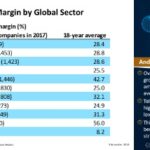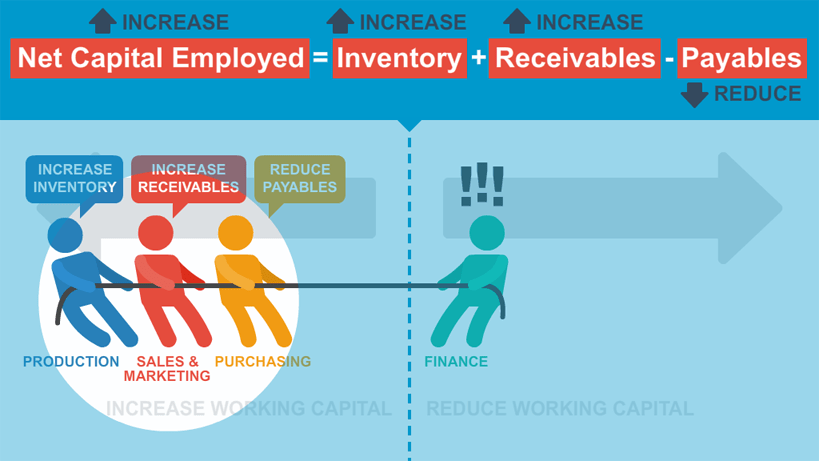About Franchise Tax Harvard Business Services

If your company has authorized 5,000 shares or fewer, your total Delaware franchise tax amount is $175. An annual Franchise Tax Notification is mailed directly to the corporation’s registered agent. The Delaware Division of Corporations will require all Annual Franchise Tax Reports and alternative entity taxes to be filed electronically.
IMPORTANT CONSUMER ALERT ABOUT TAX AND ANNUAL REPORT SCAMS

However, any first-year net income is still subject to the 8.84 percent tax rate. The Delaware franchise tax for a corporation is slightly more complicated. If DE sent your startup a huge tax bill for their annual franchise tax, don’t panic – you can likely reduce your Delaware Franchise Tax by using an alternative calculation method. We typically recommend calculating the franchise tax by using the assumed par value method, which our calculator above does, vs. the authorized share method. The authorized share method is generally Delaware’s tax team’s default method of calculating the franchise tax, and it can result in a much higher tax bill vs. the assumed par value method.
Who Pays the Delaware Franchise Tax and How Is It Calculated?
Corporations are required to pay this fee for the privilege of doing business in the state. The Delaware Franchise Tax Calculator is a tool designed to help businesses estimate their franchise tax obligations to the state of Delaware. The minimum tax for companies using the Authorized Shares Method is $175, and the maximum annual tax is $200,000. We’ve seen startups get a huge tax bill when this calculation method is used; let’s do an example of a typical, venture backed startup.
- Penalties apply for late payments or non-filing, including a $200.00 penalty for not filing a completed Annual Report by March 1st and interest at 1.5% per month on any unpaid tax balance.
- Missing the due dates results in a $200 penalty, with interest on the overdue amount (including the penalty) accruing at 1.5% per month.
- For comprehensive tax planning, using the calculator as a starting point and seeking professional advice when necessary is recommended.
- If you incorporated in Delaware, you need to pay a Delaware Franchise Tax.
How do I calculate the Delaware franchise tax?
This will allow for the lowest annual fees which is sometimes beneficial for bootstrapped start-up companies. But what if you plan to bring aboard investors in the future and the need for more authorized shares is required? If the need arises, a Stock Amendment can be filed with the state for approval to increase the number of authorized shares of the Corporation. You can calculate your corporation’s franchise tax using the Assumed Par Value Capital Method when you file the annual franchise tax report on the Delaware Division of Corporations website. Simply report your corporation’s total gross assets and the number of shares issued when completing the online filing. Certain exempt domestic corporations like charities, civic organizations and religious organizations do not have to pay the franchise tax.
DELAWARE ANNUAL FRANCHISE TAX CALCULATION INSTRUCTIONS
Foreign corporations, those that are formed outside of Delaware, cannot file online. With this type of business, your business income will be distributed to you as the sole proprietor. You will pay tax to the state on that income on your individual state tax return. Delaware franchise tax is a tax charged by the state of Delaware for the right to own a Delaware company. The tax is required to maintain the company’s good standing in Delaware. It’s crucial to note that Delaware Franchise Tax differs from the Corporate Income Tax.
For instance, corporations can choose between the Authorized Share Method and the Assumed Par Value Capital Method. Companies are also obligated to file an annual report, which goes hand-in-hand with the payment of franchise tax, to ensure the accuracy of the entity’s information on record. This method is a bit more complicated and involves multiple variables, including the total gross assets, total shares issued, and total authorized shares by class with their respective par values. Basically, a company pays $400 per million dollars of par value, but the way par value gets calculated is a bit complex. This method calculates the tax based on the number of shares your corporation has authorized. Your corporation will owe an estimated $85 for each 10,000 shares authorized.

It often includes details about the classes of stock the corporation is authorized to issue, including the par value of each class. For VC-backed startups, it current vs capital expenses will specifically mention the par value of preferred shares. Any changes to these details typically require an amendment to the Certificate of Incorporation.
Failure to submit a comprehensive report before the deadline carries a $200 fine. Additionally, if a corporation owes franchise taxes or a completed report, the Secretary of State will not issue a Certificate of Good Standing for that corporation. The company’s charter will be revoked if it neglects to pay the franchise tax for more than a year or fails to provide a complete franchise tax report. Except in cases where the corporation has been designated as a large corporate filer, the tax is $400 minimum and $200,000 maximum. For each $1 million (or fraction thereof) of assumed par value capital, the tax rate under this method is $400. All corporations incorporated in the State of Delaware are required to pay the DE franchise tax.
Failure to pay the annual franchise tax can result, in penalties, fines, or even the loss of right to conduct lawful business. You’ll need to know your corporation’s gross assets and authorized shares. When using the ‘Assumed Par Value Method,” you must provide numbers for all issued shares (including treasury shares) AND total gross assets. The Delaware franchise tax is beneficial to corporations because it is a simple process to submit and calculate payment.
If fees and penalties are not paid, a company risks losing its Certificate of Good Standing and the privilege of remaining in business in Delaware. In fact, even if your business has been inactive for the year, you will still need to pay a franchise tax. This tax is imposed on all Delaware-based businesses that want to maintain their good standing in the state — whether they are dormant or active. If you own a business based in Delaware, then you are subject to the Delaware Franchise Tax, which needs to be paid annually. This applies to whether you are operating a limited liability company (LLC), nonprofit, corporation or partnership. Even though Delaware is the second smallest state in size (after Rhode Island) and falls in at number 45 when it comes to population, this state ranks high when it comes to business formations.
Here are a few reasons why you would want to initially incorporate in Delaware. For most VC backed startups, the par value will be listed in one or more of the following legal documents. (Make sure you work with experienced https://www.adprun.net/early-payment-discount-reasons-to-offer-accounting/ attorneys so they don’t mess up important items like par value!) Your lawyer may also have put your par value into your cap table software. If you incorporated in Delaware, you need to pay a Delaware Franchise Tax.
If the tax is not paid on or before June 1, the state imposes a $200 late penalty, plus a monthly interest fee of 1.5%. Each year the State of Delaware calculates your corporation’s franchise tax obligation based on the Authorized Share Method. If so, that document can be sent directly from the Delaware Secretary of State. This document certifies the date the company was formed, that the company is current, and that the company is in good standing. If you don’t file your Delaware franchise tax on time, you will be charged a late fee.
As your Registered Agent, we will send you tax reminders both by mail and email, well in advance of the due date. We offer a tax filing service for a small fee in addition to your Franchise Tax amount. For a discounted rate you can submit your Delaware Franchise Tax payment via our online Franchise https://www.online-accounting.net/ Tax form. The online fee will vary depending on when the online payment is submitted. As long as your issued shares constitute a third to half of your authorized shares, this method will save you money. The goal of the Delaware franchise tax is to make owning a business in Delaware simple.
There are basically four key steps involved when it comes to filing your franchise tax. Corporations using the assumed par value method will pay a minimum of $400 and a maximum of $200,000. The Division of Corporations recommends that consumers be alert to deceptive solicitations. Delaware legal entities should view suspiciously any correspondence, via regular mail or e-mail, that does not come directly from the State or the entity’s Delaware registered agent.
Every yearly report and the data included within become a part of the business’s official filing history. The Secretary of State’s office maintains electronic copies of the Delaware yearly reports, and the reported information cannot be accessible to the general public. As a result, it is not possible to view an annual report that has been submitted to the State of Delaware online. Every for-profit corporation formed in Delaware is subject to Delaware franchise tax filing. The corporation is not required to do business or generate revenue in Delaware.

